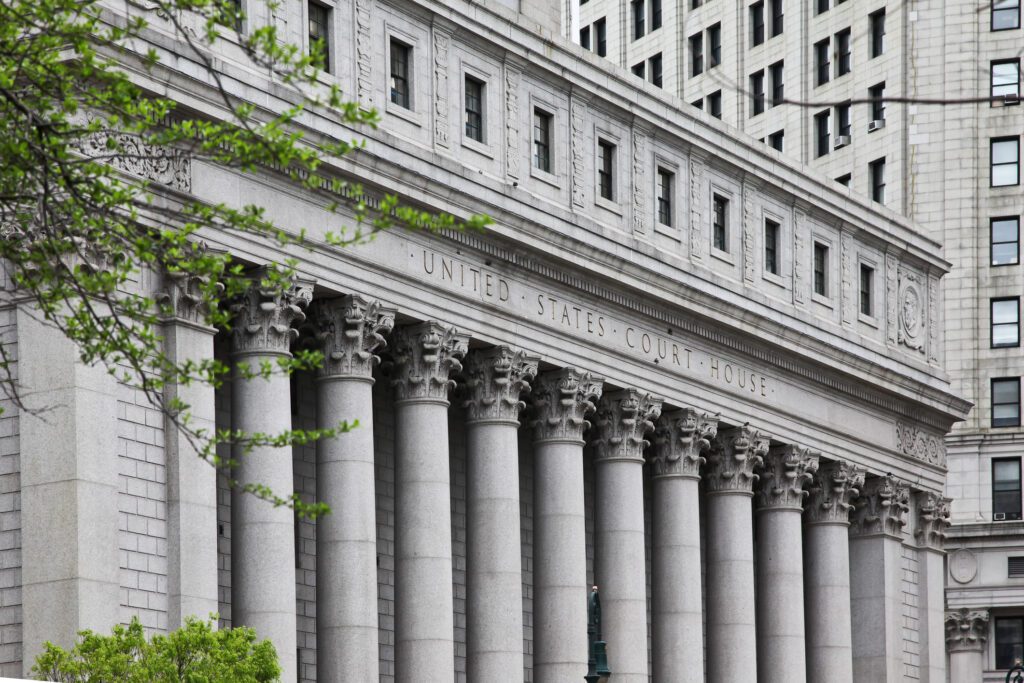Why the Trump Indictment Is a Campaign Finance Warning For Candidates


The Manhattan grand jury’s indictment of former President Trump for allegedly falsifying business records “with intent to commit another crime” is an important reminder to candidates running for office, at all levels, of some basic campaign finance prohibitions to steer clear of.
Now, much has already been written about the indictment’s merits, and voters have also voiced their opinions on the matter. But putting partisanship aside, the charges against Trump are a teachable moment in relation to campaign finance.
Under New York state law, falsifying business records is a felony if done in connection with “another crime.” The other crime alluded to in the indictment is apparently what former Trump “fixer” Michael Cohen pled guilty to: making a prohibited corporate contribution to Trump’s 2016 presidential campaign by using Trump Organization funds to pay “hush money” to an adult film actress to prevent her from going public about an alleged affair with Trump. This implicates two tricky issues that often confound candidates.
The first issue is corporate contributions. Under federal and many state laws, corporations may not contribute to candidates’ campaigns. This includes not only monetary contributions given directly to a campaign, but also money paid to third parties that benefit a campaign (per the allegation against Trump). It also includes the use of corporate resources—anything from a corporate jet to a corporate copier—for the benefit of a campaign.
Many candidates, like Trump, may be business owners, and they may sometimes be under the impression that they’re permitted to freely use their companies’ resources for their campaigns. While there’s a kernel of truth to this belief, it’s nonetheless a mistake that can lead to serious campaign finance violations.
It’s true that candidates may give an unlimited amount of their personal funds to their campaigns. However, when candidates are business owners, they still must use their own after-tax income, and not their companies’ funds, to finance their campaigns. Candidates taking distributions from their companies must do so in the ordinary course of business, taking only what they would otherwise be legally entitled to under the company’s bylaws and applicable business laws.
To the extent that candidates are contemplating using corporate resources for their campaigns, those resources must be reimbursed either with personal funds or with funds that the campaign raises. Successful business owners running for office often also like to tout their private sector experience. For example, Oklahoma Sen. Markwayne Mullin (R) featured his plumbing company’s vans in campaign ads when he first ran for the House, and Jeff Coleman featured his moving company’s vans in campaign ads in his failed bid for an Alabama congressional seat. Even this type of use of corporate resources can result in technical violations, although the Federal Election Commission (“FEC”) has dismissed such matters due to the difficulty of valuing the corporate logos.
Of course, not all candidates are business owners. The second issue the Trump indictment implicates—the “personal use” of campaign resources—is one that affects all candidates. Under federal law and many state laws, candidates may not use their campaign funds to pay for personal expenses.
The Trump indictment doesn’t directly involve this issue, since he’s not accused of using his campaign funds to make the hush money payment. But, as his attorney Joe Tacopina has argued, the underlying charge hinges on the distinction between whether the payment was for a campaign or a personal purpose.
Expenditures that are simply for making a candidate look good physically, such as buying new clothes or paying for a haircut, are considered personal and cannot be charged to the campaign. Expenditures for non-tangible items, such as paying an accuser to stay silent, are fuzzier. Trump’s defense is that, had he used campaign funds to pay the hush money, it would have been a prohibited personal use, and therefore the payment wasn’t campaign-related and not an indirect contribution to his campaign, as alleged.
Regardless of what you think of these competing arguments, the larger point is that candidates have to be extremely careful of what they spend their campaign funds on. The rules and precedents vary wildly from childcare expenses (sometimes permissible) to personal security expenses (sometimes permissible) to mortgage, rent, and utility payments for a personal residence (always prohibited, even if part of the home is used as a campaign office). And that’s only the federal rules — state laws may differ. Moreover, the permissibility of using campaign funds for many other types of payments, such as hush money, is often a huge legal grey area that has to be resolved on a case-by-case basis.
Putting aside partisan biases, many legal experts believe the underlying theory in the Trump indictment is flimsy. Still, candidates would be foolish to summarily disregard the corporate contribution and personal use prohibitions that the case implicates. Given the right facts, violations of these laws can result in expensive investigations, serious penalties, and even jail time.
Campaigns often overlook spending on attorneys, but this permissible use of campaign funds can be a wise investment for keeping candidates, campaign staff, and consultants out of legal trouble.
Eric Wang is a political law attorney and partner at The Gober Group. The firm represents candidates, elected officials, political parties, PACs, super PACs, donors, influencers, and activists, political consulting firms, lobbyists, trade associations, tax-exempt organizations, and for-profit companies in all aspects of political law.
